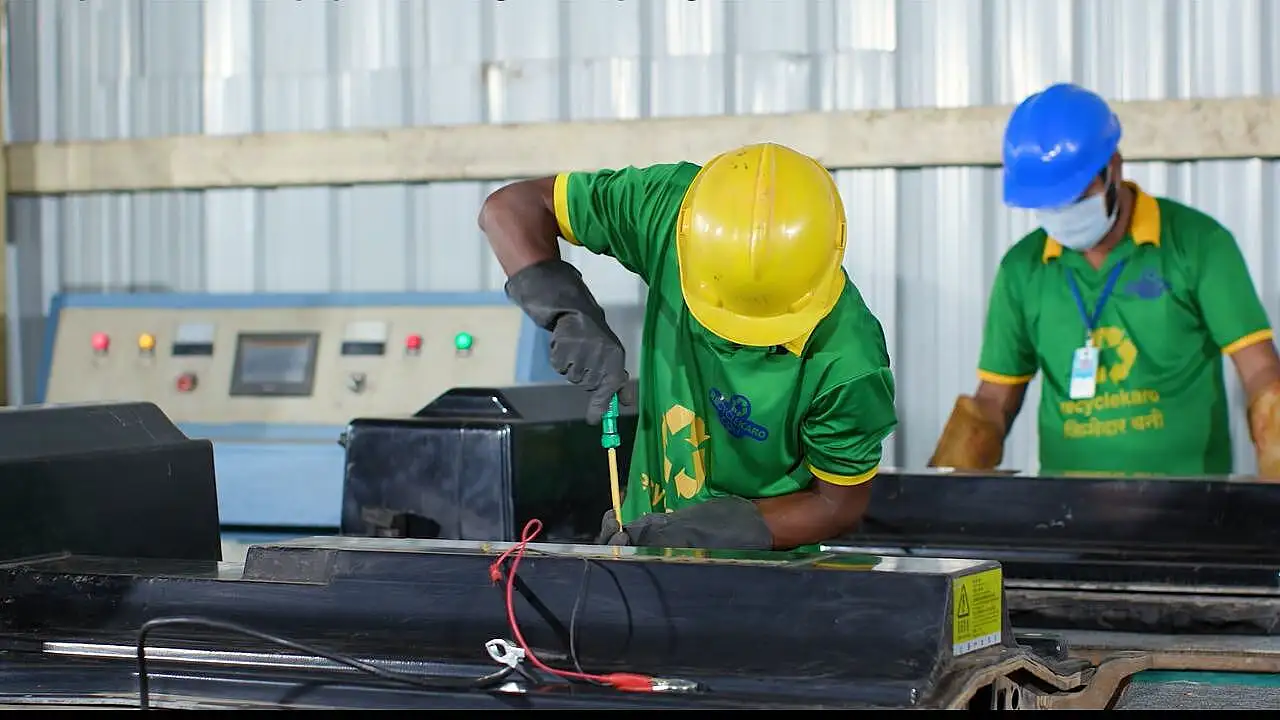
India stands on the brink of a substantial transformation in its electric vehicle (EV) industry. NITI Aayog predicts that India's EV battery recycling market will catapult from 2GWh in 2023 to an astounding 128 GWh by 2030. This remarkable growth is fuelled by a staggering 200% year-over-year increase in EV sales following the pandemic's conclusion. While this foretells a promising future, it's imperative to acknowledge that modern batteries are intricate compositions of various components. Specialised legislation and infrastructure are essential to fully realise India's recycling ambitions.
The global shift towards electric mobility is a pivotal stride towards a more sustainable and environmentally friendly transportation future. With its burgeoning population and rapid urbanisation, India is actively participating in this worldwide push for electric vehicles. As the adoption of EVs continues to surge in the country, it's paramount to address both the opportunities and challenges associated with recycling the materials used in these electric vehicles.
Opportunities In Recycling
Resource Conservation: India, a nation grappling with limited natural resources, can substantially benefit from recycling EV materials. Lithium-ion batteries, electric motors, and electronic components found in EVs contain valuable materials that can be reused, reducing the nation's dependence on imports.
Economic Growth: Recycling EV materials presents a unique economic prospect for India. Establishing recycling facilities, refurbishment centres, and investment in research and development can generate employment opportunities and bolster the domestic economy.
Reduced Environmental Impact: Recycling plays a pivotal role in minimising the environmental footprint of EVs. Reutilising materials like lithium, cobalt, and nickel diminishes mining-related environmental degradation and reduces the carbon footprint associated with raw material extraction.
Energy Efficiency: Recycling is inherently more energy-efficient than manufacturing new materials from scratch. By recycling EV components, India can save energy and decrease greenhouse gas emissions, aligning with its climate change mitigation goals.
Challenges
Lack of Infrastructure: The absence of adequate recycling infrastructure specialised in EV materials poses a significant challenge. This shortfall hampers efficient recycling processes and necessitates substantial investment.
Technological Hurdles: Recycling EV materials demands advanced technology and expertise. India must commit to research and development to create indigenous recycling technologies capable of addressing the intricacies of EV material recycling.
Complex Battery Chemistry: Lithium-ion batteries, the cornerstone of EVs, feature intricate chemical compositions. Safe and precise disassembly and recycling require significant precision and rigorous safety precautions to prevent accidents and environmental contamination.
Policy Framework: A comprehensive policy framework and regulations governing the recycling of EV materials are conspicuously absent in India. Clear guidelines are essential to stimulate investment in recycling infrastructure and ensure sustainable practices.
Given that India has a 0.8% EV penetration rate (nascent level) and a sizable vehicle industry, the market is expected to increase significantly. India stands at the precipice of significant transformation. However, addressing challenges such as the absence of appropriate laws and regulations is imperative to unlock the full potential of this burgeoning industry. As India aims for a sustainable and eco-conscious future, embracing recycling practices for EV materials will undoubtedly play a pivotal role in shaping the nation's green and sustainable transportation landscape.
Rajesh Gupta is the Founder and director of RecycleKaro. Views expressed are personal.
Also Read:
Lohum Partners With Vecmocon For EV Battery Recycling
Pure EV Receives Certification For Lithium-Ion Battery Recycling